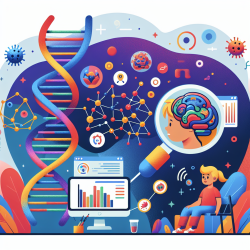Introduction
In the realm of pediatric healthcare, the intersection of ethics, legal rights, and decision-making capacity presents a complex landscape, particularly for transgender youth seeking hormone therapy. The study titled This Wasn’t a Split-Second Decision”: An Empirical Ethical Analysis of Transgender Youth Capacity, Rights, and Authority to Consent to Hormone Therapy offers critical insights into this issue, emphasizing the capacity of transgender youth to consent to hormone therapy and advocating for their rights within the informed consent model of care.
Understanding the Research
The research conducted by Clark and Virani (2021) in British Columbia, Canada, explores whether transgender youth possess the necessary capacity to consent to hormone therapy. Through qualitative content analysis of interviews with transgender youth, parents, and healthcare providers, the study found that many transgender youth demonstrate the understanding and abilities required for informed consent. This finding is crucial for practitioners, as it challenges traditional views on the maturity and decision-making capabilities of adolescents.
Key Findings
- Capacity to Consent: Transgender youth between the ages of 14 and 18 showed a comprehensive understanding of hormone therapy, including its risks, benefits, and long-term implications.
- Informed Consent Model: The study supports the use of the informed consent model, which emphasizes autonomy and self-determination, allowing youth to make healthcare decisions without mandatory mental health evaluations.
- Ethical Justification: Granting transgender youth the right to consent is ethically justified based on human rights and the principle of best interests, which prioritize the youth's well-being and autonomy.
Implications for Practitioners
For practitioners working with transgender youth, this research underscores the importance of evaluating each individual's capacity to consent rather than relying on arbitrary age-based criteria. Practitioners are encouraged to adopt a more individualized approach, recognizing the unique insights and maturity that many transgender youth possess.
Furthermore, the informed consent model offers a framework that respects the autonomy of transgender youth, aligning with the ethical principles of beneficence and justice. By supporting this model, practitioners can facilitate access to necessary healthcare while minimizing potential harm and stigma associated with traditional mental health assessments.
Encouraging Further Research
While this study provides valuable insights, it also highlights the need for further research to explore the long-term outcomes of hormone therapy initiated during adolescence. Practitioners are encouraged to contribute to this growing body of evidence, which can inform policy changes and improve healthcare practices for transgender youth.
To read the original research paper, please follow this link: This Wasn’t a Split-Second Decision”: An Empirical Ethical Analysis of Transgender Youth Capacity, Rights, and Authority to Consent to Hormone Therapy.










